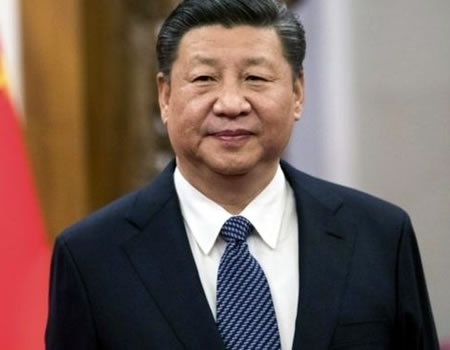When the Chinese President, Xi Jinping announced, on December 4, 2015, at the Johannesburg Summit of the Forum on China-Africa Cooperation that China would implement satellite TV programs for 10,000 African villages and that Nigeria would get 1,000 of the allocation, it was a news well received by the Nigerian Government. The China-African Cooperation project, which is known as “Access to Satellite TV for 10,000 African Villages”, will enable people in African rural villages to watch satellite TV and will help African rural villagers to cope with poverty and inequalities with achieving the goals of UN 2030 Agenda for Sustainable Development.
A year after delivering on its promises to adopted villages, several communities are testifying to the rewards from the exposure. In Hulumi village, a suburb of the Federal Capital Territory, Abuja, the Chinese government, through StarTimes, had installed 20 satellite TV dish, solar powered projector TVs for a communal viewing center and TV set.
In a recent interview with Dimas Daniel, the District Head of Hulumi Village, he lauded the Chinese government and StarTimes for the gesture as according to him, a lot of things has changed among his people.
“First of all we thank StarTimes and the Chinese Government for this project. The people of this community are more informed than they were many years before the installation was done. In the area of personal development, language speaking, home improvement, cooking, sports activities, farming and even how we dress sometimes, clear changes have been recorded. People are generally happy each time there is electricity because they now have the chance to watch TV. I can say that this project has changed the lifestyle of our people positively more than we even expected when the project was launched in 2017. Everybody is pleased with it.
North-West group endorses Gbajabiamila as speaker
“The information they get from this foreign channels is so much that it helps them improve in their education. Now when they are being taught some things in school, it is not strange to them because they may have seen it on TV before the class. We have noticed this among our children, it is helping them in their education and all the parents are very happy to see their child doing better. The viewing centre operates between one to two times per week. We normally use the viewing center as a means of bringing our people together to enjoy some of these movies and TV shows both the foreign and local ones”, he said.
Kpaduma, an underdeveloped rural community in Abuja, Nigeria’s capital, is also one of the beneficiary communities who have developed in many ways than one in the last year. For decades, residents of Kpaduma had only been familiar with analog TV, lacking the opportunity to watch some of the exciting satellite television channels enjoyed by people in the towns and cities across Nigeria. Yusuf Dio, the prince of Kpaduma and a beneficiary of the direct broadcast satellite terminal system, described the innovative project as “the talk of the town.” Every evening, up to 20 locals who had no television or lacked electricity normally gather at Dio’s house to watch the digital television programs together with his family.
“We are very happy to have this (digital television) in our household. It has brought so much joy and pleasure to my family,” Dio said.
Chinese ambassador to Nigeria, Zhou Pingjian, reaffirmed the commitment of China to implementing the outcome of the FOCAC, saying China would work closely with Nigeria to ensure people’s access to information through television and satellite technology. Zhou said the implementation of the digital television project would also go a long way in delivering the China-Africa cooperation’s goal of connectivity, especially people-to-people connectivity, one of the core objectives of the China-proposed Belt and Road Initiative.
David Zhang, managing director of StarTimes in Nigeria, said the implementation of the project will create more jobs, as Nigerians across the 1,000 selected villages have been trained on how to install, recharge and operate the satellite television system. The projector TVs and digital TV that are laid out in public areas will be open to all villagers for free permanently. The implementation of the project will open a window for African rural families to learn outside world and also acquire more useful information to expand their horizon and change their destinies.
According to the Chinese government, “Through the satellite TVs, African governments can popularise knowledge of agriculture, science, sanitation and so on in rural villages”. By watching TV, people can learn more useful knowledge and skills. The project can also create huge job opportunities and sustainably contribute to the growth of economy. To ensure the long-term operation of the project, local staff will be hired to fulfill different duties.






